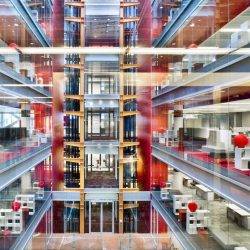July 5, 2017
Minimum wage should be extended to the self employed and gig economy 0
 The government should extend minimum wage legislation to protect some of the UK’s 4.8 million self employed workforce as part of its drive to tackle low pay and insecurity in the modern workforce, according to a new report published by the Resolution Foundation. The Minimum Required? – which forms part of the Resolution Foundation’s submission to the Taylor Review on modern employment practices – sets out a number of proposals to tackle endemic levels of low pay among the self-employed. Its new analysis claims that that while around in one in five employees are low-paid (earning less than two-thirds of typical weekly earnings), last year around half of the full-time self-employed workforce (49 percent) fell below this threshold, earning less than £310 a week.
The government should extend minimum wage legislation to protect some of the UK’s 4.8 million self employed workforce as part of its drive to tackle low pay and insecurity in the modern workforce, according to a new report published by the Resolution Foundation. The Minimum Required? – which forms part of the Resolution Foundation’s submission to the Taylor Review on modern employment practices – sets out a number of proposals to tackle endemic levels of low pay among the self-employed. Its new analysis claims that that while around in one in five employees are low-paid (earning less than two-thirds of typical weekly earnings), last year around half of the full-time self-employed workforce (49 percent) fell below this threshold, earning less than £310 a week.



















 Most FMs would tell you that the state of the workplace toilets is often one of the main determinants by occupants on how well the facilities department is doing its job. So it’s disturbing to learn that according to a new survey a significant number of employees have cause to complain about the state of their workplace toilet facilities. The research, carried out by the Association of Plumbing & Heating Contractors claims that 16.5 percent of people are unhappy at work due to the condition of their employer’s toilets which is having a negative impact on their levels of engagement. Their research found 43.8 percent of the people surveyed felt their workplace toilets needed to be better maintained. And when asked if their workplace toilets require updating or refurbishing, 44.4 percent said they did. London seemingly has the worst workplace toilets with 50.9 percent of workers surveyed believing they need to be better maintained and require refurbishing.
Most FMs would tell you that the state of the workplace toilets is often one of the main determinants by occupants on how well the facilities department is doing its job. So it’s disturbing to learn that according to a new survey a significant number of employees have cause to complain about the state of their workplace toilet facilities. The research, carried out by the Association of Plumbing & Heating Contractors claims that 16.5 percent of people are unhappy at work due to the condition of their employer’s toilets which is having a negative impact on their levels of engagement. Their research found 43.8 percent of the people surveyed felt their workplace toilets needed to be better maintained. And when asked if their workplace toilets require updating or refurbishing, 44.4 percent said they did. London seemingly has the worst workplace toilets with 50.9 percent of workers surveyed believing they need to be better maintained and require refurbishing.


 Issues with the quality of their workplace lighting frustrate the majority (83 percent) of UK office workers; while 80 percent experience negative symptoms due to poor lighting a new study suggests. The survey by Lutron Electronics focused on key areas including the impact of lighting on mood and wellbeing and whether workers had personal control of their lights or were subject to standard lighting control settings across the office. Understandably, 88 percent of UK respondents said that their office lighting is important or very important and one third (32 percent) stated that their existing workplace lighting aids them in the accuracy and visibility of their work. In addition, 27 percent believe it allows them to focus more while 25 percent said it increases their general wellbeing. However, 35 percent of overall respondents said their existing office lighting does not have any positive impact on them at work. This figure is even higher (44 percent) among those in large companies with more than 5,000 employees and amongst the most senior generation (55+), where it reached more than half (51 percent).
Issues with the quality of their workplace lighting frustrate the majority (83 percent) of UK office workers; while 80 percent experience negative symptoms due to poor lighting a new study suggests. The survey by Lutron Electronics focused on key areas including the impact of lighting on mood and wellbeing and whether workers had personal control of their lights or were subject to standard lighting control settings across the office. Understandably, 88 percent of UK respondents said that their office lighting is important or very important and one third (32 percent) stated that their existing workplace lighting aids them in the accuracy and visibility of their work. In addition, 27 percent believe it allows them to focus more while 25 percent said it increases their general wellbeing. However, 35 percent of overall respondents said their existing office lighting does not have any positive impact on them at work. This figure is even higher (44 percent) among those in large companies with more than 5,000 employees and amongst the most senior generation (55+), where it reached more than half (51 percent).










June 29, 2017
The onus is on employers to create working conditions that attract people 0
by Graham White • Comment, Facilities management, Wellbeing
(more…)